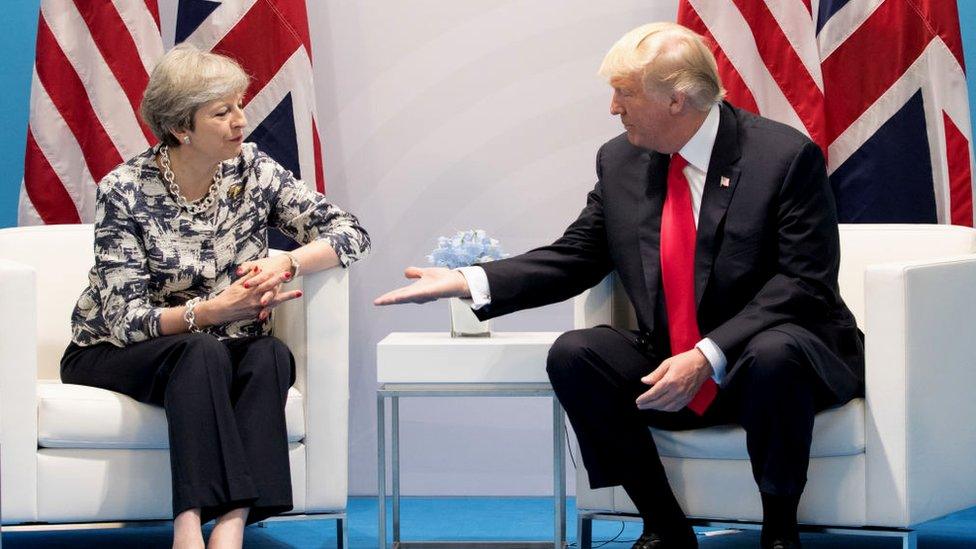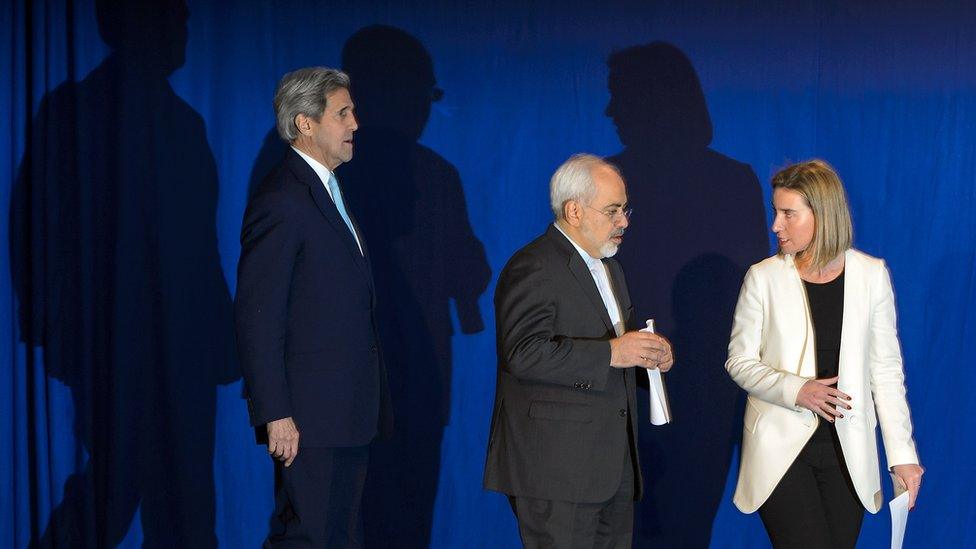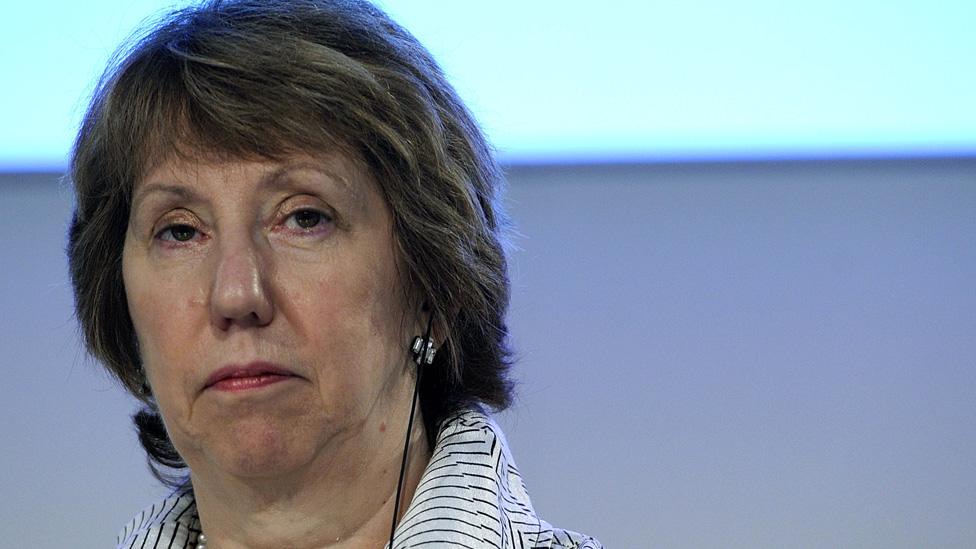What do Trump's words on Iran mean for US/UK relations?
- Published

There was a time when President Trump's refusal to certify the Iran nuclear deal would have sent the British foreign policy establishment into a tailspin.
His campaign attacks on what he called "the worst deal in the world" left policymakers in the UK fearing that here, finally, was an issue on which Britain's relationship with the US could founder.
Mr Trump believes that Iran is no longer restricting its nuclear programme enough to justify the sanctions relief it enjoys. As such, he will no longer certify US support for the agreement. The UK disagrees and believes Iran is complying fully. These are two positions that cannot be reconciled.
British ministers and officials loathe being at odds with Washington. They find it a culturally difficult place for them to be. And as they prepare to leave one traditional pillar of British foreign policy, the European Union, they want to stick even more closely to the other pillar, namely the United States.
So for the UK and the US to be utterly divided over a central plank of international policy is no little thing. Britain had to choose between its allies in America and Europe and it has taken the path of its continental partners.

The agreement on a nuclear deal with Iran was announced in April 2015
But if one listens carefully along the corridors of Whitehall, there appears to be little sign of panic. There is a huge transatlantic divide and yet no-one is declaring the "special relationship" to be dead.
Of course, officials and diplomats are worried about the substance of the issue itself. They fear that the simple act of decertification will weaken the nuclear deal. They believe there is a huge risk involved in handing the issue over to Congress.
What if US politicians try to reopen the agreement? What if they lay down new so-called "trigger points" that are so stringent that Iran cannot comply and sanctions are reimposed automatically? Any breakdown of the nuclear deal could have a huge impact on regional security in the Middle East, on Britain's economic access to Iran and even on the behaviour of North Korea.
But if diplomats are concerned about the issue, they seem less nervous about the consequences for Britain's relations with the US. And here is why: the behaviour of the Trump White House has given them leave to be less worried. The fact that the president is so at odds with parts of his administration and party has made it legitimate for traditional allies to share those differences too.
It is almost as if the Trump modus vivendi has made it even more obvious that the transatlantic relations that matter are the historic state-to-state contacts between the different agencies of government rather than the personal relations between individual leaders.
This week Theresa May had a telephone call with Israeli Prime Minister Benjamin Netanyahu. And in it she went out of her way to challenge Mr Trump's thinking on Iran. Not only did she praise the nuclear deal but she also refused to make any connection - as Mr Trump does - between it and Iran's regional aggression.
She did this only days before Mr Trump's big speech. And yet despite this, the house did not fall in. There was no diplomatic row. No-one said the British prime minister was snubbing the US president. Her comments were hardly considered news.

Baroness Ashton, former EU foreign policy chief, is concerned about the impact on any diplomatic solution to the North Korea crisis
Britain's ambassador the US, Sir Kim Darroch, has been equally robust, touring the foreign policy think tanks to list the benefits of the nuclear deal: how many fewer centrifuges Iran now has and how much less uranium.
His embassy has been tweeting "how the Iranian deal is working". And Sir Kim has spent hours and hours on the Hill with his French and German counterparts explaining to senators and members of congress why the deal matters.
The real fear among British officials is not the impact on US-UK relations but the damage to Western credibility in the international sphere; the signal that it sends to other countries that it is not worth doing deals with the US because they might just turn round and tear them up a few years later. What message does it send to China, for example, over any deal that might be done with the US over North Korea?
Baroness Ashton, the former EU foreign policy chief who negotiated the Iran deal, told me this week that getting a diplomatic solution to the North Korea crisis would be "much harder" if countries think "an agreement reached by one US president will not be honoured by another".
Once again Donald Trump has shown himself willing to break the traditional rules of the international order. And once again there will be consequences for the rest of the world.